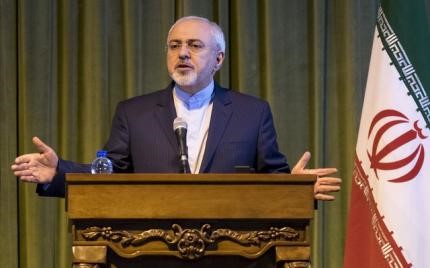DUBAI (Reuters) - Iran rejected criticism from Saudi Arabia on Tuesday about Tehran's interventions in unstable countries in the Middle East, and accused the kingdom in turn of playing a destabilising role in the volatile region.
Foreign Ministry spokeswoman Marzieh Afkham was responding to comments by Riyadh's foreign minister Adel al-Jubeir, who on Monday said Iran's military role in Syria disqualified it from playing a role in peacemaking efforts there.
"The Saudi foreign minister, whose country has taken a military-led approach and fostered extremism in regional conflicts ... is not qualified to talk about Iran's role in the region," Afkham was quoted as saying by state news agency IRNA.
Separately, Iran's Foreign Minister Mohammad Javad Zarif said the Saudi authorities had not taken responsibility for last month's haj disaster, in which Tehran says 465 Iranian pilgrims died.
Saudi Arabia has not provided a final death toll for the Sept. 24 crush at Mina, outside the Muslim holy city of Mecca. Individual statements from affected countries suggest the total number is far higher than Riyadh's initial tally of 769.
"We feel that the government and haj officials in Saudi Arabia have not taken responsibility for the Mina disaster, did not take appropriate steps to save the pilgrims and have not conducted an investigation into the victims' situation," Zarif said according to IRNA.
Sunni Saudi Arabia and Shi'ite Iran are vying for influence in the Middle East. Both powers take an active role in conflicts from Syria to Yemen while blaming the other for fostering instability and sectarianism.
Jubeir said that by arming Syria's President Bashar al-Assad and sending "Shi'ite militias" to fight alongside his forces, Tehran had become an "occupier of Arab lands", as he repeated his call for Assad to step down.

Afkham in turn accused Riyadh of playing a divisive role. "The only country that continues to take a zero-sum approach to regional developments and tries to eliminate other powers is Saudi Arabia, and this unconstructive approach leads nowhere," she said.